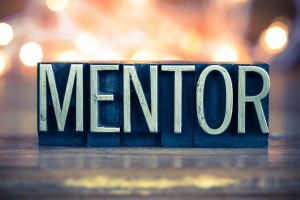The Death Of A Mentor, And Other Stories
He loved to tell stories, no matter the audience. And it was that trait, among many others, that made him such a skilled litigator.
 I come from a family of medical professionals. Throughout my childhood, their dinnertime tales were complicated, detailed, and full of medical jargon; they were boring at best and decidedly gross at worst. I decided at a very young age that between my intense dislike of math and science and the utter lack of storytelling potential, the medical field was not for me.
I come from a family of medical professionals. Throughout my childhood, their dinnertime tales were complicated, detailed, and full of medical jargon; they were boring at best and decidedly gross at worst. I decided at a very young age that between my intense dislike of math and science and the utter lack of storytelling potential, the medical field was not for me.
On the other hand, the courtroom adventures relayed by my parent’s longtime friend, Edward Z. Menkin, were not only wildly entertaining and always memorable, but also exciting and inspirational.
You see, Ed — “Eddie” as he was known by his peers — was a wonderful storyteller. He loved to tell stories, no matter the audience. And it was that trait, among many others, that made him such a skilled litigator. Trials are all about telling good stories, and the best criminal defense lawyers are great at it.

Raising The Bar in Bar Prep
But don’t take my word for it, take it from Ed. In his memoir, “Death on the Doorstep & other stories,” he explains why effective opening statements are all about telling the jurors a good story:
Forget the “table of contents” bullshit. Tell them a story. It’s sort of the same story the D.A. is trying to tell — sort of — but it has a different point of view and you are definitely working towards a very different ending.
There’s no doubt about it. Ed knew how to spin a tale. He wasn’t just good at it. In fact, if you asked him, he was the best. According to Ed, that sense of egotism was a necessary job requirement:
Let me get this out of the way. I’m in love with myself. Always have been. Always will be … [H]aving an ego and positive sense of self doesn’t just have some very definite advantages in my line of work. It’s essential. A client who’s looking at the destruction of his life, his family, and his liberty because the dark forces of the State are bearing down on him at warp speed, does not want a lawyer who’s afraid of stepping up, sticking his chest out, and telling the prosecutor to back the fuck off. That’s not a mission for the weak of heart and you don’t just need to believe in your client and his cause. You need to believe in yourself.
Sponsored

Raising The Bar in Bar Prep

How Savvy Lawyers Build Their Law Firm Rate Sheet

Trust The Process: How To Build And Manage Workflows In Law Firms

Trust The Process: How To Build And Manage Workflows In Law Firms
When I read this excerpt last week, it brought me to tears. I could hear his voice and see the twinkle in his eyes as I read it, and it almost seemed like he was in the room with me. It almost felt like he was still alive.
But he’s not. Ed died on March 31.
On that day, the world lost a fantastic trial lawyer, a wonderful man — and a great mentor — my mentor.
You see, Ed was the reason I became a lawyer. From a very young age, I wanted to be just like “Mr. Menkin.” That’s what I called him back then because I was just a kid. Eventually, after I became a lawyer, he became “Ed” to me. Never “Eddie,” because that always seemed too familiar to me.
As soon as I expressed an interest in going to law school, Ed took me under his wing and helped me understand what it meant to be a lawyer. In high school, I visited his office many times and even shadowed him for a day or two. When I was in college, he helped me get an internship at the U.S. Attorney’s Office.
Sponsored

How To Build And Manage Your Law Firm Rate Sheet

Law Firms Now Have A Choice In Their Document Comparison Software
And during my second year of law school, he invited me to second chair a federal trial. He involved me in the preparation and asked my opinion throughout the trial. He even made an objection to the jury charge based on my input, and, somewhat surprisingly, that objection ultimately became the basis for a successful appeal.
He listened to me, he guided me, and most importantly, he provided me with invaluable perspective. For example, I bombed one of my classes in law school and received the lowest grade I’d ever received in any course. It was a class that was important to me and the future I envisioned for myself. When I told Ed about it he said “Listen to me, Nik. I’ve never had a potential client walk into my office and ask me what grade I got in a class in law school. Trust me, it’s not gonna matter.”
And he was right. He always was.
I interviewed him for a podcast a few years ago, and he shared some of his favorite courtroom stories, some of which you’ll read about in his memoirs. Yes, memoirs. Because he didn’t stop with one memoir. Of course, he didn’t. He wrote another one, too.
After all, he had too many stories to tell. And if you ask me, the world is a better place because he told them.
Nicole Black is a Rochester, New York attorney and the Legal Technology Evangelist at MyCase, web-based law practice management software. She’s been blogging since 2005, has written a weekly column for the Daily Record since 2007, is the author of Cloud Computing for Lawyers, co-authors Social Media for Lawyers: the Next Frontier, and co-authors Criminal Law in New York. She’s easily distracted by the potential of bright and shiny tech gadgets, along with good food and wine. You can follow her on Twitter at @nikiblack and she can be reached at niki.black@mycase.com.







